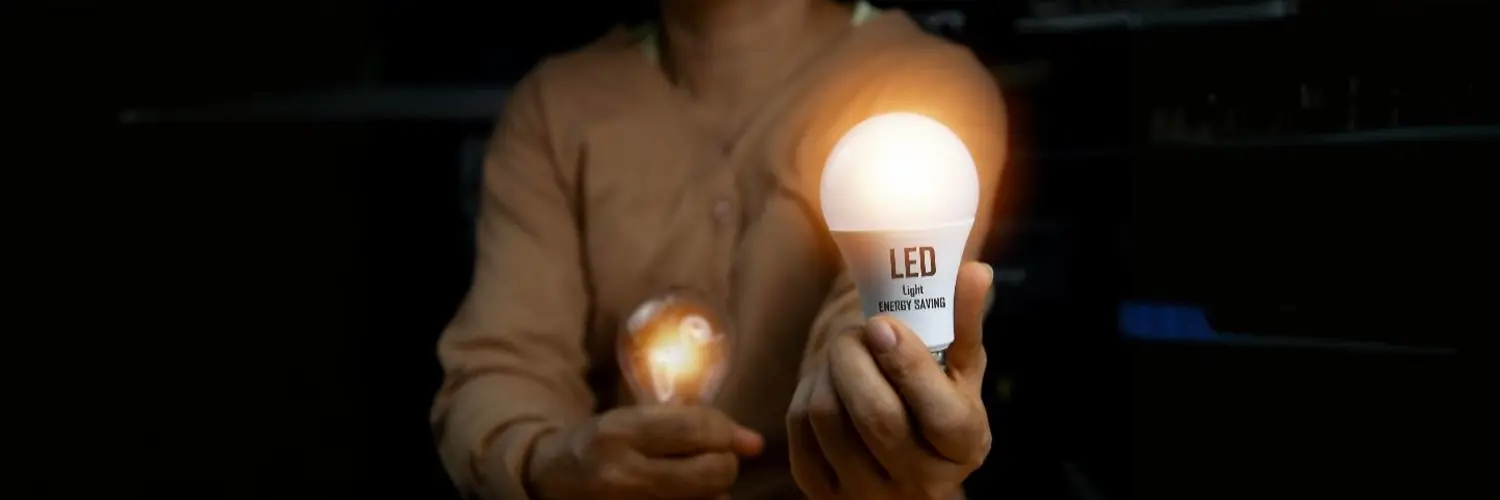
In today's energy-conscious world, understanding the power consumption of LED lights is essential for both cost savings and environmental impact. LED lights are known for their efficiency, but knowing how much electricity they consume can help you make informed decisions about usage and savings.
LED lights are significantly more energy-efficient than traditional incandescent and CFL bulbs. They convert most of the energy into light rather than heat, making them a cost-effective choice for homes and businesses. Additionally, they come in various wattages, providing versatile lighting solutions for different settings.
To determine the electricity usage of LED bulbs or LED ceiling lights, use the following formula:
Power Consumption (kWh) = (Wattage × Hours Used Per Day) ÷ 1000
For example, if you use a 10W LED light for 5 hours daily:
10W × 5 hours = 50Wh (Watt-hours) per day
50Wh ÷ 1000 = 0.05 kWh per day
To calculate the monthly cost, multiply by 30 days and the electricity rate per kWh. If the electricity rate is PKR 20 per kWh, then:
0.05 kWh × 30 days × PKR 20 = PKR 30 per month per LED light
Several factors impact the power consumption of LED lights, including:
Wattage: Higher wattage LEDs consume more power but provide better brightness.
Usage Duration: The longer you keep LED lights on, the more energy they consume.
Voltage Stability: Fluctuations in electricity supply may impact efficiency.
LED Efficiency: High-quality LEDs have better lumens per watt and consume less power.
Dimming Features: Some LED lights come with dimming capabilities, further reducing energy consumption when full brightness is not needed.
Lighting TypePower Consumption (for 800 lumens) Lifespan
Incandescent 60W 1,000 hours
CFL 14W 8,000 hours
LED 9W 25,000 hours
This comparison clearly shows that LED lights consume far less power than incandescent and CFL bulbs while offering a much longer lifespan. Additionally, LEDs reduce energy wastage, making them the preferred choice for energy-efficient lighting.
Energy Efficiency – Reduces electricity bills significantly.
Long Lifespan – Requires less frequent replacements.
Eco-Friendly – Produces lower carbon emissions.
Lower Heat Emission – Keeps your home cooler compared to traditional lighting.
Instant Lighting – Unlike CFLs, LEDs light up instantly without a warm-up period.
By calculating the power consumption of LED lights, you can smartly cut down on electricity costs. Whether you are upgrading home lighting or considering commercial applications, LED bulbs and LED ceiling lights are an excellent investment. Opting for energy-efficient LED lighting not only reduces electricity bills but also contributes to a greener environment.
Sara Electric offers a wide range of LED lights and electrical products tailored to meet energy-efficient lighting needs. Explore high-quality LED bulbs, LED ceiling lights, and other advanced lighting solutions for homes and businesses. Contact us for the latest collection of energy-efficient lighting products.
1. How do I reduce my LED light power consumption?
Use LED lights with motion sensors, choose energy-efficient models, and turn off lights when not in use.
2. Are LED lights expensive in Pakistan?
While the LED light price in Pakistan varies, they are a cost-effective choice for the long run.
3. Can I use LED lights for outdoor applications?
Yes, LED lights can be easily used outdoors, especially those with weatherproofing features.
4. Can LED lights work with dimmer switches?
Yes, but you need to use dimmable LED bulbs compatible with your dimmer switch for optimal performance.
5. Do LED lights save money in the long run?
Absolutely! Although they have a higher upfront cost, the reduced power consumption and longer lifespan lead to substantial cost savings over time.